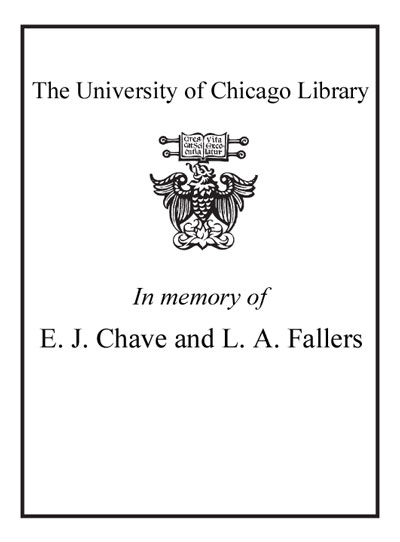The Wittenberg Concord : creating space for dialogue /
Saved in:
| Author / Creator: | Jensen, Gordon A., author. |
|---|---|
| Imprint: | Minneapolis, MN : Fortress Press, [2018] |
| Description: | xxiv, 235 pages : map ; 23 cm. |
| Language: | English |
| Series: | Lutheran quarterly books Lutheran quarterly books. |
| Subject: | |
| Format: | Print Book |
| URL for this record: | http://pi.lib.uchicago.edu/1001/cat/bib/11709307 |
Table of Contents:
- Acknowledgments
- Abbreviations
- Foreword
- Introduction
- 1. The Quest for an Evangelical Political Alliance
- Justifying an Evangelical Alliance
- The Diet of Augsburg
- The Formation of the Schmalkald League
- Renewed Possibilities for Theological Concord
- Conclusion
- 2. Stifled Dialogues (1520-29)
- The Lord's Supper
- Real Presence
- At God's Right Hand
- Baptism
- Confession and Absolution
- The Marburg Colloquy
- Conclusion
- 3. Recreating Space for Theological Dialogue (1530-34)
- Renewed Dialogue
- New Threats to Dialogue
- Dialogue with France, England, and Rome
- Conclusion
- 4. Negotiating an Agreement (1534-36)
- The Initial Breakthrough
- Selling the Lord's Supper Formula
- Negotiation Preparations and Challenges
- The Journey to Wittenberg
- Negotiations in Wittenberg
- Conclusion
- 5. Agreeing on the Lord's Supper
- The Nature of Christ's Presence in the Lord's Supper
- With the Bread and Wine
- Do Unbelievers Eat Christ's Body and Blood in the Supper?
- Conclusion
- 6. Agreeing on Baptism and Absolution
- Agreeing on Baptism
- The Necessary Bath of Rebirth
- Baptism as an Action of God
- Faith, Baptism, and Infants
- Baptism and Original Sin
- Absolution
- Conclusion
- 7. Failed Negotiations: Controlling Church Property
- The Imperial Chamber Court
- The Wittenberg Memorandum
- Conclusion
- 8. Implementing the Concord: After the Negotiations
- The Concord in Saxony
- The Concord in South Germany
- The Concord in Switzerland
- Conclusion
- 9. Making Room for Dialogue Today
- A New Interpretation of the Wittenberg Concord
- The Leuenberg Concord (1973) and Formula of Agreement (1997)
- The Problem with Words
- The Wittenberg Concord as a Model for Ecumenical Dialogue Today
- Conclusion
- Appendix 1. The Constance Articles: Articles Proposed by Martin Bucer to the Conference of Swiss and South German Theologians, Held in Constance, December 17, 1534
- Appendix 2. Luther's Thoughts: Given by Luther to Melanchthon in Preparation for the Kassel Dialogue, December 17, 1534
- Appendix 3. The Wittenberg Concord, 1536
- On Baptism
- On Absolution
- Appendix 4. Memorandum on the Jurisdiction of Civil Authorities over Church Property (for the councillors of the city of Augsburg), May 23, 1536
- Appendix 5. Personnel Involved with the Wittenberg Concord Negotiations
- South German Negotiators of the Wittenberg Concord
- Lutheran Negotiators of the Wittenberg Concord
- Appendix 6. Map of Cities and Territories Accepting the Wittenberg Concord
- Bibliography
- Index

